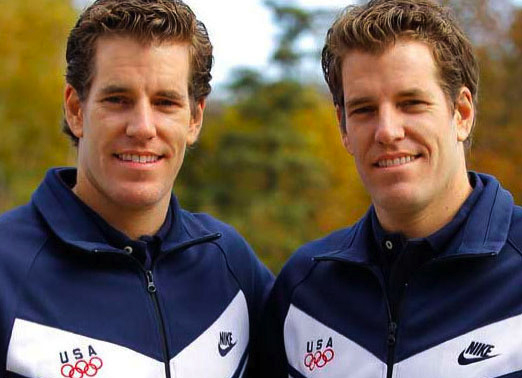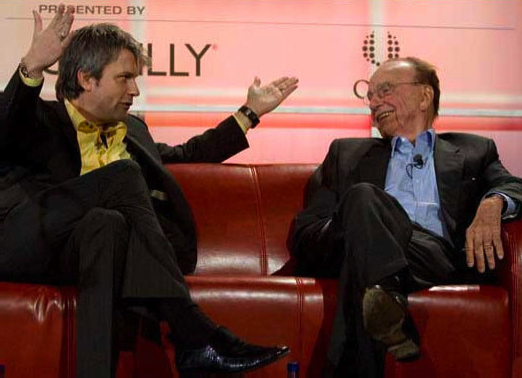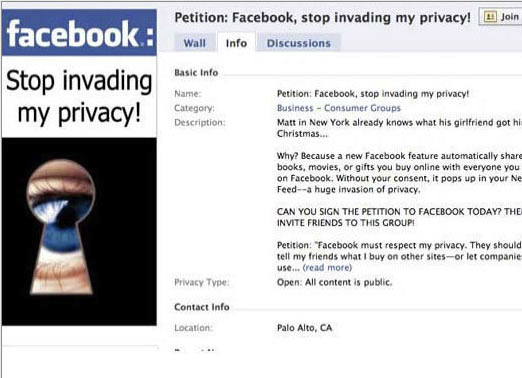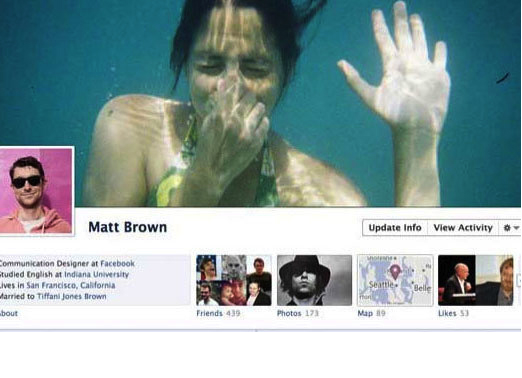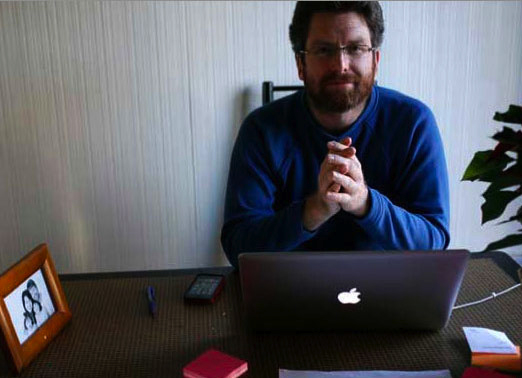By Dan Tynan (ITWorld)
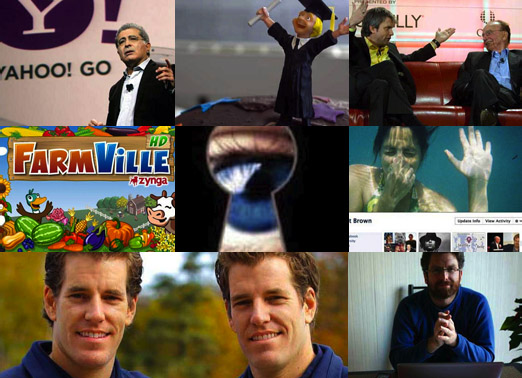
-
February 2004
Cameron and Tyler Winklevoss, launching a Harvard-based social network probably sounded like a multi-billion-dollar idea. And it was — just not for them. Hiring sophomore ubergeek Mark Zuckerberg to write code for HarvardConnection proved a fatal mistake. By the end of 2004, Zuckerberg’s “TheFacebook” boasted more than 1 million members on hundreds of US campuses. The lawsuit over who owned the rights to the idea would drag on for years and result in a pretty entertaining movie (see slide #8). The rest, as they say, is history.
The Good: Changed the face of the Internet forever?
The Bad: Foisted “the Winklevii” onto an ungrateful nation
Photo Credit: REUTERS/Adam Hunger
-
July 2005
News Corp’s July 2005 acquisition of Intermix Media, MySpace’s parent company, was crucial to Facebook’s success. It introduced the phrase “social network” to millions of Americans. It suggested such networks had real market value, even as critics scoffed at the $580 million purchase price. And it put Facebook’s biggest competitor — then more than four times its size — into the hands of total incompetents who would eventually drive it into a tree. Last June, News Corp dumped MySpace for $35 million, or roughly three days’ worth of Facebook’s 2011 ad revenue.
The Good: Separating Murdoch from some of his money isn’t the worst thing that ever happened
The Bad: MySpace is now partially owned by Justin Timberlake
Credit: REUTERS/Kimberly White
-
July 2006
When Mark Zuckerberg walked away from Yahoo’s $1 billion acquisition offer in 2006, many people thought the then-22-year-old had lost his mind. (The deal may have tasted a bit more sour after Yahoo CEO du jour Terry Semel cut the offer to $850 million.) Now Yahoo’s failure to acquire the world’s largest Web entity for 1 percent of its current estimated value counts as one of its biggest screw-ups. Given Yahoo’s track record, Facebook might not even exist today if Zuck had said yes.
The Good: Kept Facebook from suffering the same fate as Broadcast.com
The Bad: Semel pocketed more than $500 million before he finally got canned
Photo Credit: REUTERS/Rick Wilking
-
September 2006
September 2006 was a huge month for the fledgling social network. Facebook was opened to the masses; you no longer had to be enrolled in high school or college to sign up. And it introduced a “news feed” that allowed members to see what all their friends were up to — resulting in a privacy backlash from Facebook faithful. That in turn prompted the first public mea culpa from Mark Zuckerberg: “We really messed this one up.” It wouldn’t be the last.
The Good: Now everyone and their grandmother can have Facebook account
The Bad: Grandma just sent you a friend request
Photo Credit: Flickr/CarbonNYC
-
May 2007
For the first three years of its existence, Facebook was just another place for people to exchange pokes and throw sheep at each other. But after Facebook opened its platform to third-party app developers it became something much bigger. The 85 initial apps introduced at the F8 conference in May 2007 would grow to more than 500,000 in just a few years and allow Facebook to leapfrog MySpace, while social games like Farmville, Cityville, and Mafia Wars would turn Zynga into the world’s most annoying entertainment powerhouse.
The Good: People over the age of 22 finally had a reason to sign up
The Bad: Your friends just shoveled 90 million tons of manure on Farmville
-
November 2007
The idea was simple enough: Facebookers who bought movie tickets on Fandango or booked a flight on Travelocity could broadcast that activity to their friends. By partnering with third-party Web sites, Facebook Beacon would usher in a new era of social advertising. The problem? Users balked at having their formerly private activities automatically made public, and security researchers found that Facebook still secretly collected this information even after users had opted out. Even today, Beacon is still synonymous with “privacy nightmare.”
The Good: Facebook got solidly spanked for using members’ data without asking
The Bad: Beacon later morphed into Facebook Connect and Timeline Apps
Photo Credit: Yale Law & Technology
June 2010
It had been a rough few months for Zuckerberg. A plan to spread the “Like” button aross the Web and share user data with third-party sites had sparked calls for a Facebook boycott. When he appeared onstage at the AllThingsD conference with Walter Mossberg and Kara Swisher, he began sweating like a polar bear in a sauna. Then Swisher talked him into removing his hoodie, revealing a spooky Illuminati-style insignia on the inside. ìOh my God. Youíre a cult!î Swisher joked. (At least, we hope she was joking.) Zuckerberg later redeemed himself with a more polished appearance on “60 Minutes,” but doubts about the 25 year old’s leadership abilities remained.
The Good: There is no Zuckerati, as far as we know
The Bad: Wondering whether he ever…
October 2010
How many people have had a movie made about them while they’re still barely old enough to vote? The cinematic account of Facebook’s beginnings portrayed the youthful CEO as brilliant, ruthless, awkward, and amoral, yet not entirely unsympathetic. It went on to win numerous awards and made Zuck’s case better than he ever could: Even if he did steal the idea for Facebook and screw over every friend in the process, Zuckerberg is the true architect of its success.
The Good: 120 minutes of rollicking entertainment
The Bad: Zuckerberg is now a role model for thousands of ambitious amoral geeks
-
September 2011
What advice do you have for Thorsten Heins as the new CEO of Research in Motion?
More than just a complete redesign of the profile page, Timeline is Facebook’s attempt to become the digital page of record for one’s entire life, from cradle to grave. Shortly after unveiling Timeline, Facebook also announced it had reached a settlement with the FTC over various privacy violations, marking a new phase in its maturity and clearing up major question marks before …
The Good: Facebook promises the FTC it will ask first and share later
The Bad: Timeline entrenches Facebook even more deeply in our lives
-
2012
Everyone knows Facebook will go public; the only question is when. (Some say the IPO will happen in May of this year; others predict September or later.) When it does, it’s likely to be one of the largest in history; analysts speculate Facebook will achieve a book value of $100 billion or more, with Zuckerberg’s net worth reaching around $25 billion. How will Facebook change as a result of going public? It may be pressured into finding new revenue streams by monetizing the enormous cache of user data it has collected. Or it could face even closer scrutiny over future privacy violations, especially as the FTC conducts its bi-annual audits. As they say, only time will tell.
Photo Credit: REUTERS/Robert Galbraith




